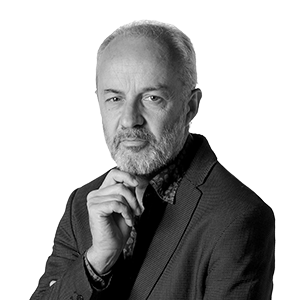

Mikhail Bakunin, the Russian father of anarchism, possessed an aristocratic temperament inherited from his family and was capable of charming all kinds of people, transcending barriers of class, social origin, and nationality. He was a sociable being. "Voluntary solitude is almost identical to selfishness, and can a selfish person be happy?" he wrote at a very young age, thus rejecting Rousseau's supposed perfect solitude. Josep Alemany explains all this in his insightful introduction to the classic and great work. best-seller by Bakunin God and the State (Adesiara), which he himself translated.
Now it's time to talk about Bakunin? Indeed. It's well known that libertarian ideas took firm root in Catalonia at the end of the 19th century. Our love-hate relationship with power, with the State, which fought against Vicens Vives and has caused us so much grief, is rooted in this attractive and fascinating influence. Bakunin is a captivating figure. Now nobody remembers him, of course. In reality, nobody remembers almost anything. But the more hidden the legacies, the heavier they often are. We Catalans have been more prone to revolt than to corridors and palaces. The result: more prisoners and exiles than free men. Bakunin!
The emergence of his libertarian socialism was slow and turbulent. His life was tumultuous. Philosophically, Bakuninian anarchism originates in the Phenomenology of Spirit of Hegel and in The essence of Christianity of Feuerbach. Yes, Bakunin was a man of action, but also of thought, spiritual and poetic. Well-read. Without reading, revolutions are neither possible nor impossible. Incidentally, despite not intending to, he wrote very well. He was intellectually gifted. His mind was always racing. His heart, too. Physically, the twelve years in prison broke him.
In Russia, subjected to the despotism of the tsars, his father, from a noble family with liberal leanings, educated him at home on a rural estate, an idyllic world apart from the rest, with private tutors, surrounded by chatty brothers and sisters. A happy childhood always yields precious results. He studied in French and learned some German and English, a language he would later perfect in prison and which would lead him to triumph during his time in the United States. He never studied Latin or Greek, nor did he receive any instruction in Russian grammar. A retired military uncle taught him mathematics.
But all good things must come to an end. In 1828, at the age of 14, his father sent him to the artillery school in St. Petersburg, where he made neither friends nor settled in. Seven years later—seven!—he deserted from the army. His father spared him punishment, and at 22, he settled in Moscow as a mathematics teacher. He began reading Fichte and Hegel. These were formative years, until he left: Switzerland, Belgium, and finally, in 1844, Paris, where he met Proudhon, Marx, and the writer George Sand. He also met the Pole Lelewel, who introduced him to the struggles of the Slavic peoples: Czechs, Slovaks, Ruthenians (as the Ukrainians of the Austrian Empire were called), Croats, Slovenes, and Poles. Bakunin became a revolutionary democrat who linked the social question with the national question (the freedom of peoples). In reality, he didn't truly become an anarchist until later in life, during the last twelve years.
His participation in the revolutionary cycle of 1848 landed him in prison in Dresden. Sentenced to death twice, his sentences were commuted to life imprisonment. From Austria, he was extradited to Russia. He spent many years in prison (suffering from headaches, scurvy, and tooth loss) and later in Siberia, where he fell in love with and married the daughter of a Polish exile whom he tutored. Finally, he escaped and ended up in Yokohama and then the United States. He was 47 years old. When he returned to Europe, he resumed the struggle and channeled anarchist thought within a clandestine environment of secret societies and constant travel: London, Florence, Naples... In Geneva, he advocated for a "United States of Europe," but states organized from the bottom up. In 1870, he became involved in the Lyon uprising. And then came the most famous episode: after clashing with Marx, he was expelled from the Socialist International (1872). He died in Switzerland four years later, at the age of 62. The end of a noble and rebellious man.
